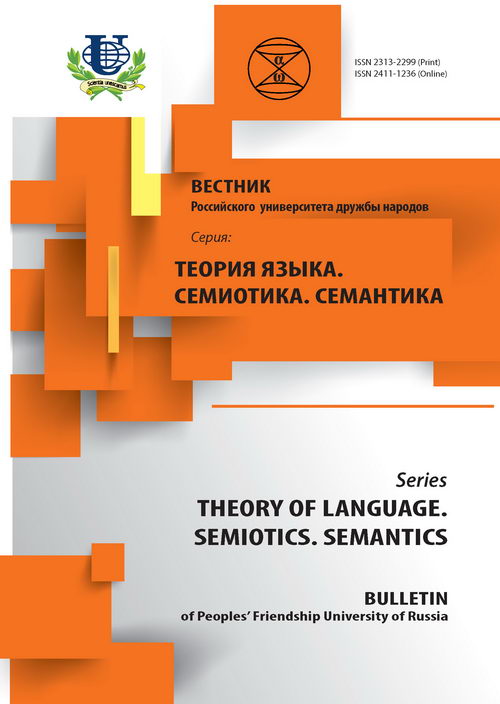Analysis of the Constitutions Texts from the Linvoconflictology Positions
- Authors: Khromenkov PN1
-
Affiliations:
- Moscow State Regional University
- Issue: No 4 (2015)
- Pages: 83-90
- Section: ARTICLES
- URL: https://journals.rudn.ru/semiotics-semantics/article/view/7560
- ID: 7560
Cite item
Full Text
Abstract
The article is devoted to the analysis of conflictogenous elements of Constitutions preambles of the countries of the world by a method of the quantitative content - analysis. In the article the lexemes forming the text of program character are examined. There are marked value sated and value emasculated Constitutions. The majority of constitutions informs on the struggle conducted by people, without a concrete definition of against whom it is conducted, that legislatively would mark the enemy and essentially would strengthen confrontational intentions in corresponding society. The significant part of constitutions in which the enemy is nominated is revealed. Also it is shown, that texts of constitutions preambles of the countries of East and Central Asia are sated with conflictogenous lexemes essentially more, than constitutions of European countries, i. e. in comparison of constitutions on the countries with evidence it is found out their regional clusterization. More often the conflict is projected on the historical past. Through corresponding historical narrative senses of struggle of former generations for the state sovereignty are broadcast, as a rule. Only small part of constitutions speaks about the conflict in application by present time, and the some even to the future. Two basic points represented and fixed verbally in preambles of constitutions of the form of the conflict are war and revolution. It is revealed, that preambles of constitutions are not free from emotivity, figurativeness, metaphors. The certain correlation between ideology of the constitutions and it conflictogenity is traced.
Keywords
References
Supplementary files












